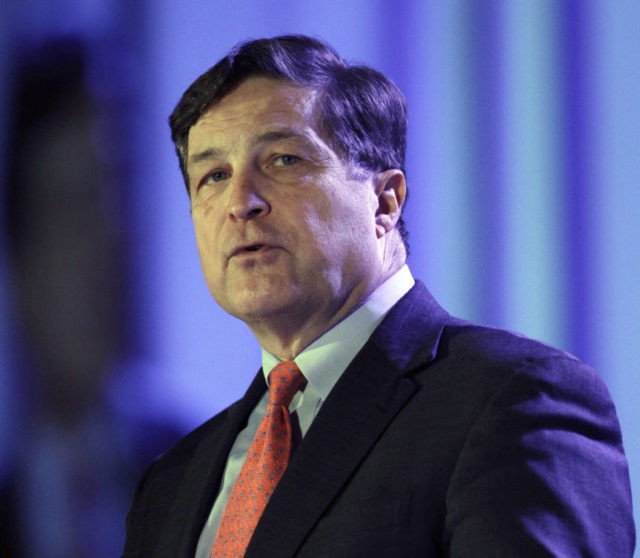Richmond Federal Reserve President Jeffrey Lacker suddenly and unexpectedly quit Tuesday after he admitted in a statement that he discussed confidential information with an analyst in 2012.
Lacker’s role in the 2012 leak of sensitive information to an analyst at Medley Global Advisors came to light as part of a federal investigation. His resignation comes as part of a deal worked out with investigators, a person familiar with the matter said.
“Once our Bank’s Board of Directors learned of the outcome of the government investigations, they took appropriate actions,” the Richmond Fed said.
“I deeply regret the role I may have played in confirming this confidential information and its dissemination to Medley’s subscribers,” Lacker said.
Lacker, who has been the head of the Richmond Fed for 13 years, stopped short of admitting that he was the source of the information and said that it was not his intention to reveal confidential information in his conversation with the analyst. CNBC’s Steve Liesman reported Tuesday afternoon that an attorney for Lacker said that federal authorities have said no charges will be filed against his client.
Medley disclosed to its clients previously unknown details about the Fed’s plans for the third round of asset purchases, known as QE3, according to sources familiar with the matter. The leak has been under investigation internally by the Fed, by federal prosecutors in the Southern District of New York ,and the Commodity Futures Trading Commission. The federal prosecutors and CFTC have been investigating possible insider-trading in connection with the leaks.
Lacker said that the analyst brought up an “important non-public detail” about the Fed’s plans. Instead of ending the call, Lacker continued the conversation. The following day, Medley published its report containing the sensitive information.
It remains unclear how the Medley analyst originally obtained the information that Lacker says he confirmed. But the report was so detailed that it left little doubt it was based on non-public information.
The report came after the Fed announced in September 2012 its plans to attempt to boost economic growth by buying $40 billion worth of mortgage-backed securities each month.
Medley’s October 3rd report said Fed officials had discussed adding monthly purchases $45 billion of Treasury bonds, a policy which the Fed didn’t announce until the following December. It also said that Fed officials had discussed assuring market actors that the central bank wouldn’t consider raising interest rates until unemployment fell below 6.5% or the medium-term outlook for inflation rose above 2.5%. Those numerical triggers weren’t formally adopted by the Fed until later that year.
Other intriguing details from the Medley report include a report that staff members were working past midnight to prepare for the central bank’s meeting and that the minutes from the meeting would include a reference to a staff meeting. Those minutes were published by the Fed the day after Medley’s report.
In addition to admitting that he confirmed some of the Medley analysts non-public information, Lacker also said that he did not initially tell the Fed’s investigators that the analyst was in possession of that information during the call. Instead, he only disclosed this fact in 2015 when he was interviewed as part of the investigation by federal prosecutors, the CFTC and the Federal Bureau of Investigations.
“I regret that in this instance I crossed the line to confirming information that should have remained confidential,” Lacker said.
Lacker had previously announced his intention to retire this fall. Under the Fed’s rotating schedule, the Richmond Fed president will not become a voting member of the 12-person interest rate setting board until 2018.
Lacker has been an advocate for the Fed to adopt a faster pace of rate hikes. He has dissented over a dozen times to the Fed’s interest rate decisions during his term, consistently arguing for a less accommodative monetary policy stance. He opposed the use of the Fed’s balance sheet to buy mortgage bonds during the financial crisis.

COMMENTS
Please let us know if you're having issues with commenting.